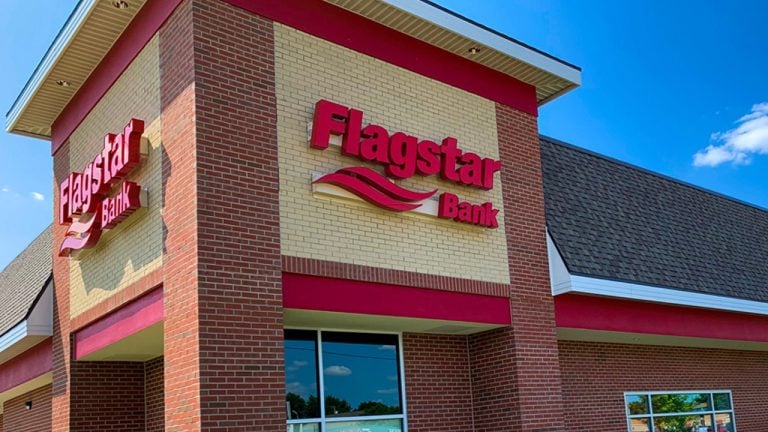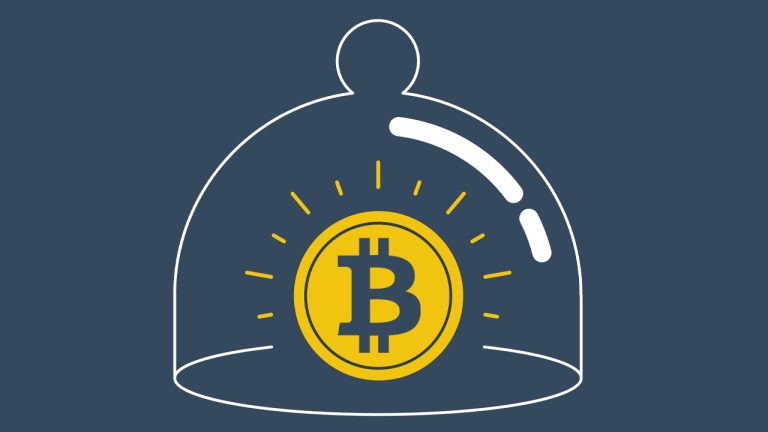 On Monday, about a week after the collapse of Signature Bank, the Federal Deposit Insurance Corporation (FDIC) announced that Flagstar Bank, a wholly owned subsidiary of New York Community Bancorp, acquired 40 former branches of Signature and its assets. Flagstar assumed nearly all of Signature’s deposits, except for $4 billion of deposits related to the […]
On Monday, about a week after the collapse of Signature Bank, the Federal Deposit Insurance Corporation (FDIC) announced that Flagstar Bank, a wholly owned subsidiary of New York Community Bancorp, acquired 40 former branches of Signature and its assets. Flagstar assumed nearly all of Signature’s deposits, except for $4 billion of deposits related to the […] Interest in the U.S. banking crisis has risen greatly over the past two weeks, as shown by Google Trends data. There has been a sharp increase in queries related to search terms such as “banking crisis,” “bank collapse,” and “bank failure.” On March 13, 2023, the search term “banking crisis” reached the top Google Trends […]
Interest in the U.S. banking crisis has risen greatly over the past two weeks, as shown by Google Trends data. There has been a sharp increase in queries related to search terms such as “banking crisis,” “bank collapse,” and “bank failure.” On March 13, 2023, the search term “banking crisis” reached the top Google Trends […] After the failure of Silicon Valley Bank (SVB), a great deal of Americans are starting to realize the dangers of fractional-reserve banking. Reports show that SVB suffered a significant bank run after customers attempted to withdraw $42 billion from the bank on Thursday. The following is a look at what fractional-reserve banking is and why […]
After the failure of Silicon Valley Bank (SVB), a great deal of Americans are starting to realize the dangers of fractional-reserve banking. Reports show that SVB suffered a significant bank run after customers attempted to withdraw $42 billion from the bank on Thursday. The following is a look at what fractional-reserve banking is and why […] According to a recent warning by the U.S. Public Company Accounting Oversight Board (PCAOB), crypto proof-of-reserve (POR) audits have limitations, and the board believes that investors should exercise caution when dealing with companies using POR audits. PCAOB Calls for Investor Caution and Due Diligence When Using Proof-of-Reserve Reports The U.S. accounting watchdog recently issued an […]
According to a recent warning by the U.S. Public Company Accounting Oversight Board (PCAOB), crypto proof-of-reserve (POR) audits have limitations, and the board believes that investors should exercise caution when dealing with companies using POR audits. PCAOB Calls for Investor Caution and Due Diligence When Using Proof-of-Reserve Reports The U.S. accounting watchdog recently issued an […] On March 1, 2023, Nellie Liang, undersecretary for domestic finance at the U.S. Treasury, delivered a speech to the Atlantic Council in Washington concerning the subject of central bank digital currencies (CBDCs). Liang detailed during her speech that a CBDC is one of several options for “upgrading the legacy capabilities of central bank money,” and […]
On March 1, 2023, Nellie Liang, undersecretary for domestic finance at the U.S. Treasury, delivered a speech to the Atlantic Council in Washington concerning the subject of central bank digital currencies (CBDCs). Liang detailed during her speech that a CBDC is one of several options for “upgrading the legacy capabilities of central bank money,” and […]
ASIC claims a crypto yield-bearing product from Finder’s registered exchange was unlicensed; the firm disagrees but has declined to say if it will fight the suit.
Financial product comparison website Finder.com is being sued by Australia’s financial services regulator for allegedly offering a cryptocurrency yield-bearing product without the required license.
It’s the second local provider of a crypto yield product to be targeted by the regulator, following action against Block Earner in November
The Australian Securities and Investments Commission (ASIC) began court proceedings on Dec.15 against Finder.com’s subsidiary Finder Wallet,a locally registered digital currency exchange.
ASIC alleged that the Finder Earn product was an unlicensed financial product and that Finder Wallet breached product disclosure requirements and failed to comply with obligations pertaining to distributing financial products in a targeted manner.
Finder Earn offered users an annual yield of between 4.01% and 6.01% for depositing the Australian dollar-pegged stablecoin True AUD (TAUD).
ASIC claimed the product was a debenture — a debt instrument unbacked by collateral — which requires an Australian Financial Services (AFS) license.
It claimed that Finder Earn “exposed consumers to potential harm” as they may have been offered a product “not suitable for them.” Finder disagrees with this assessment.
“We do not share ASIC’s view that Finder Earn can be regarded as a debenture,” a Finder.com spokesperson told Cointelegraph.
“Since Finder Earn was launched in November 2021, we have proactively engaged with ASIC and have cooperated fully with all ASIC requests for information.”
Finder Earn was “sunset” on Nov. 24, which ASIC claimed was due to it notifying Finder Wallet of its concerns.
The Finder.com spokesperson claimed the decision to discontinue the product “was a strategic business decision” due to increased interest rates and “not brought on by regulatory review.”
“We were in the process of this sunset when we were notified [ASIC] might take a closer look,” they added.
Both ASIC and Finder.com’s spokesperson said that all user funds were fully returned following the termination of Finder Earn.
Finder said it “will not be commenting further as this matter is now before the courts” when questioned if it would contest the suit.
Sarah Court, ASIC’s deputy chair, said in the announcement that its “message to industry is clear — just because an offer involves a crypto-asset related product does not guarantee it will fall outside the current regulatory regime.”
Related: Australian 'token mapping' consultation paper to release in early 2023: Treasurer
ASIC’s suit against Finder.com marks its third action in as many months against crypto financial products and the firms who provided them.
In November ASIC sued fintech firm Block Earner for similarly offering three crypto-backed fixed-yield earning products without an AFS license. In response to the suit, Block Earner’s CEO lashed out at the “lack of clarity” in the country’s financial licensing regime.
Financial services firm BPS Financial was sued by the regulator in October for “unlicensed conduct” related to its “Qoin” token, with alleged “misleading” representations that Qoin was regulated in Australia.
ASIC chair Joe Longo previously warned that “action will be taken” on firms that promote what he called “high-risk and niche” crypto investment products.

Despite a significant fine from Iowa’s regulator just two weeks earlier, BlockFi has scored itself a license in the state.
Just two weeks after being fined by Iowa’s regulators for offering and selling unregistered securities, crypto lending platform BlockFi announced on June 28 thait has received a Money Services License in the state.
The Iowan license will allow the crypto lender to receive money and sell payment instruments in the state. BlockFi on Twitter stated it will begin by allowing Iowan residents to trade stablecoins.
We're excited to announce that we’ve received our Money Services License in Iowa.
— BlockFi (@BlockFi) June 28, 2022
Iowa residents can now trade stablecoins on our platform and instantly transfer funds via ACH. pic.twitter.com/sNEFIlCeWY
Previously on June 14 the Iowa Insurance Division (IID) responsible for securities sales in the state fined BlockFi over $943,000 for violations of the state’s Securities Act. IID alleged BlockFi had “offered and sold securities in Iowa that were not registered or permitted for sale in Iowa” along with failing to register as a broker-dealer or agent.
The fine was part of a larger penalty brought by the United States Securities and Exchange Commission (SEC) in February for not registering an offering of high-yield interest accounts that the commission deemed to be securities.
The fine was one of the largest penalties ever imposed by a federal regulator on a crypto business. BlockFi was hit with $100 million in settlements, with half paid to the SEC and the other half to 32 states which brought forward similar charges.
Shortly after, BlockFi said it intended to register with the SEC for a crypto interest-bearing security for its U.S. customers to replace its current interest accounts offering.
The new license is a glimmer of good news for BlockFi which has struggled along with other blockchain and crypto companies in the worsening market conditions and falling crypto prices.
On June 16, BlockFi was among the lending firms forced to liquidate some of the positions from venture firm Three Arrow Capital (3AC) with the latter unable to meet a margin call on its Bitcoin (BTC) borrowings.
Celsius, a rival crypto lending platform, paused customer withdrawals on June 13 attributing the decision to the market conditions. Other reports followed that the company was facing liquidity issues and would soon be facing insolvency.
Related: Community reacts after SEC’s Gensler affirms BTC’s commodity status
These conditions have also seen a round of layoffs from blockchain and crypto companies, with BlockFi CEO Zac Prince saying on June 14 that it would be letting 20% of its staff go in order to remain profitable. It’s unknown how much of an effect the SEC’s financial penalties had on the decision.
A week later on June 21, BlockFi received a lifeline from crypto exchange FTX which saw BlockFi sign a revolving credit facility agreement for $250 million to bolster the firm's balance sheets and strengthen the platform.
Days later, it was reported that FTX may be in talks to purchase a stake in BlockFi, although a BlockFi spokesperson told Cointelegraph on June 24 that it “does not comment on market rumors" and is “still negotiating the terms of the deal”, and shareholders are reportedly unhappy with the move as it would wipe out shareholder equity.
It has recently been reported that Anthony Pompliano's investment firm Morgan Creek is attempting to put together an alternative $250 million deal to buy a majority stake in BlockFi.